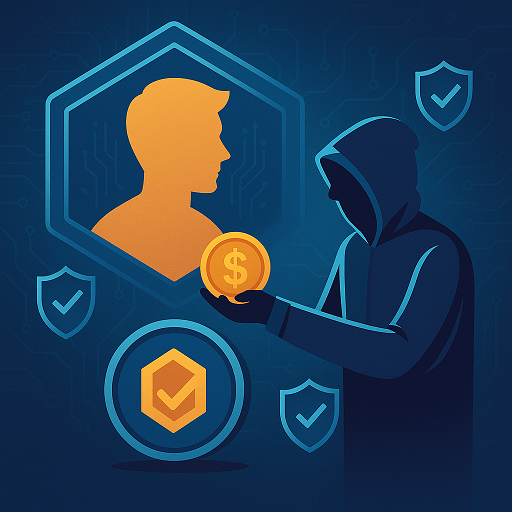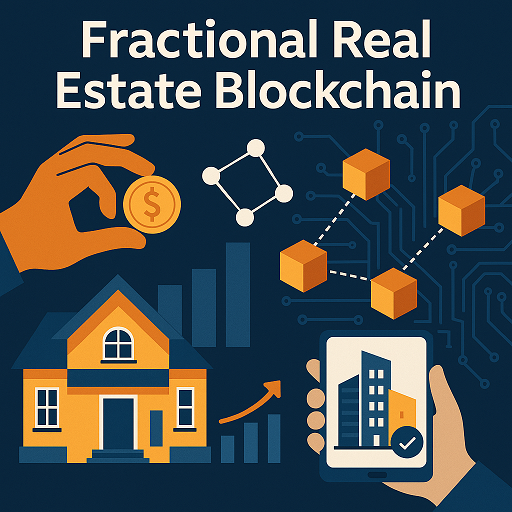Introduction
In the constantly shifting realm of decentralized finance (DeFi), new solutions are transforming how lending operates, moving beyond outdated traditional methods. One of the most promising concepts gaining traction is Reputation-Backed Lending Tokens, which enable borrowing based on verified on-chain identity and trustworthiness. This article explores the mechanics, benefits, and future potential of reputation-backed lending in the blockchain ecosystem.
Understanding the Evolution of Blockchain-Based Lending
Decentralized finance has revolutionized how individuals and institutions access credit. Unlike traditional banks, DeFi platforms eliminate intermediaries, offering peer-to-peer lending solutions with transparent smart contracts. However, a major challenge persists: credit risk assessment without relying on traditional credit scores.
Historically, DeFi lending has been dominated by overcollateralized loans, where borrowers must lock significant amounts of cryptocurrency to access funds. While this mitigates default risk, it excludes users without substantial crypto holdings. The need for more inclusive and efficient credit models has led to the development of Reputation-Backed Lending Tokens, bridging the gap between trustless systems and reliable creditworthiness.
The Role of On-Chain Identity in Lending Tokens
At the heart of reputation-backed lending lies on-chain identity. Unlike off-chain identities, which depend on centralized databases and credit bureaus, on-chain identities are decentralized, transparent, and verifiable through blockchain networks. These identities aggregate a user’s historical interactions, including:
- Wallet activity
- DeFi participation
- Repayment history
- Social verifications (e.g., ENS profiles, POAPs)
- Governance contributions
By analyzing these data points, lending protocols can assess a borrower’s on-chain reputation score, which becomes the foundation for issuing Lending Tokens. This approach transforms anonymous wallet addresses into rich profiles of behavior and reliability.
How Reputation-Backed Lending Tokens Work
The process of issuing and utilizing Reputation-Backed Lending Tokens involves several steps:
- On-Chain Identity Aggregation: Users authenticate their wallets and connect to decentralized identity frameworks such as Lens Protocol, BrightID, or similar platforms that compile activity data into a unified on-chain profile.
- Reputation Scoring Models: Algorithms evaluate factors like loan repayment history, staking activities, and governance participation to generate a dynamic reputation score.
- Lending Token Issuance: Based on the reputation score, users receive Lending Tokens representing their creditworthiness. These tokens serve either as trust-backed collateral or provide borrowers with direct access to funds, depending on the platform’s model.
- Smart Contract Enforcement: Loan agreements are executed via smart contracts, ensuring trustless, automated enforcement of terms based on Lending Token metrics.
- Reputation Feedback Loop: Borrowers who fulfill obligations enhance their on-chain reputation, unlocking better lending terms and higher borrowing limits in the future.
This model creates a self-reinforcing ecosystem of trust, rewarding responsible behavior and reducing reliance on collateral.
Advantages of Reputation-Backed Lending Tokens
The integration of on-chain identity into lending protocols offers multiple benefits:
Financial Inclusion
By utilizing blockchain’s open and borderless infrastructure, reputation-backed lending creates alternative pathways for individuals traditionally excluded from formal credit systems, expanding financial access to underserved populations worldwide.
Lower Collateral Requirements
With trust established through reputation, borrowers can secure loans with reduced or no collateral, freeing up capital for productive use and improving capital efficiency in DeFi markets.
Enhanced Risk Assessment
Real-time, transparent data allows for more accurate borrower evaluations, minimizing default risks and improving overall loan portfolio quality.
Incentivized Positive Behavior
The feedback loop of reputation encourages borrowers to maintain good standing, fostering a more responsible and sustainable lending environment.
Challenges and Risks of Lending Tokens
While Reputation-Backed Lending Tokens hold significant potential, their implementation comes with notable obstacles that need to be addressed:
Data Privacy Concerns
Aggregating personal and financial data on-chain raises privacy issues. Balancing transparency with user privacy through zero-knowledge proofs and selective disclosures remains a key technical hurdle.
Sybil Attacks
Malicious users might attempt to generate numerous fraudulent identities in order to artificially inflate their reputation scores and exploit lending systems. This calls for robust identity verification measures.
Standardization and Interoperability
With various protocols developing their own identity and reputation systems, lack of standardization could hinder broader adoption and cross-platform functionality.
Smart Contract Vulnerabilities
As with all DeFi applications, smart contracts governing Lending Tokens are susceptible to bugs and exploits, necessitating rigorous auditing and security measures.
What Lies Ahead for Lending Tokens in DeFi
The convergence of on-chain identity, reputation systems, and Lending Tokens is poised to redefine DeFi lending in several ways:
Cross-Chain Reputation Portability
Future protocols will enable users to carry their reputation across multiple blockchains, fostering a truly interoperable DeFi ecosystem.
Integration with Real-World Assets (RWA)
By linking reputation-backed lending with tokenized real-world assets, users could access broader financial products, such as mortgages or business loans, through DeFi platforms.
Decentralized Credit Bureaus
The rise of decentralized credit bureaus powered by blockchain could challenge traditional credit agencies, offering transparent, user-owned credit histories.
Gamified Reputation Systems
Incorporating gamification elements—such as badges, achievements, and rewards—can incentivize positive borrower behavior, making reputation building engaging and accessible.
Regulatory Considerations for Lending Tokens
As Lending Tokens gain adoption, regulatory scrutiny will inevitably follow. Key considerations include:
- KYC/AML Compliance: Ensuring that identity verification aligns with global anti-money laundering standards while preserving user privacy.
- Consumer Protection: Establishing safeguards against predatory lending practices and ensuring fair treatment of borrowers.
- Legal Recognition of On-Chain Identity: Developing legal frameworks that acknowledge and validate blockchain-based identities and reputations.
Collaborations between DeFi projects, regulators, and legal experts will be crucial to navigate these challenges and foster responsible innovation.
Use Cases Beyond Traditional Lending
Reputation-Backed Lending Tokens can extend beyond simple loans, unlocking a wide array of applications:
Microloans and Peer-to-Peer Credit
Facilitating small-scale, community-driven lending initiatives where trust and reputation play a central role.
DeFi Insurance Underwriting
Using on-chain reputation to assess risk and underwrite decentralized insurance products more accurately.
DAO Governance Participation
DAOs could allocate resources or grant voting power based on members’ reputation-backed Lending Tokens, promoting merit-based decision-making.
Freelancer and Gig Economy Platforms
Integrating reputation scores into payment and escrow systems for freelance marketplaces, ensuring trust between clients and service providers.
Conclusion: The Path Toward Trustless Yet Accountable Lending
Reputation-Backed Lending Tokens represent a pivotal evolution in DeFi, blending the openness of blockchain with the nuanced assessment of trust and accountability. By leveraging on-chain identity and reputation, these tokens can democratize access to credit, reduce systemic risks, and foster a more inclusive financial ecosystem.
As technological, regulatory, and societal frameworks mature, the widespread adoption of Lending Tokens could redefine how we think about creditworthiness—not as a centralized score controlled by banks, but as a dynamic, transparent reflection of individual actions on the blockchain.
The future of lending is not just decentralized. It’s reputation-powered.





















